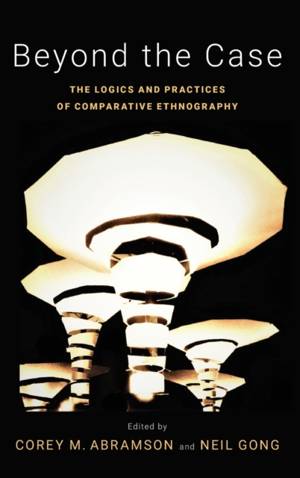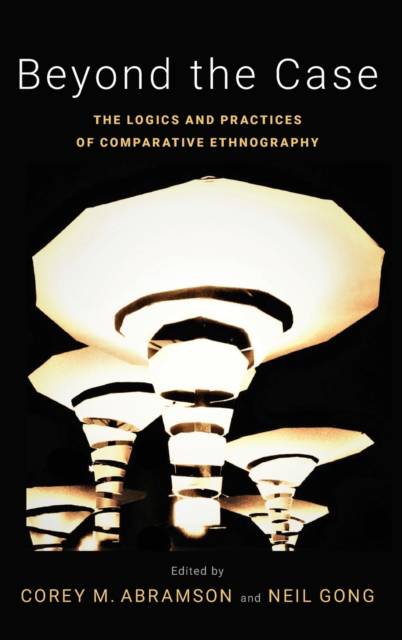
Door een staking bij bpost kan je online bestelling op dit moment iets langer onderweg zijn dan voorzien. Dringend iets nodig? Onze winkels ontvangen jou met open armen!
- Afhalen na 1 uur in een winkel met voorraad
- Gratis thuislevering in België vanaf € 30
- Ruim aanbod met 7 miljoen producten
Door een staking bij bpost kan je online bestelling op dit moment iets langer onderweg zijn dan voorzien. Dringend iets nodig? Onze winkels ontvangen jou met open armen!
- Afhalen na 1 uur in een winkel met voorraad
- Gratis thuislevering in België vanaf € 30
- Ruim aanbod met 7 miljoen producten
Zoeken
Omschrijving
The social sciences have seen a substantial increase in comparative and multi-sited ethnographic projects over the last three decades. Yet, at present, researchers seeking to design comparative field projects have few scholarly works detailing how comparison is conducted in divergent ethnographic approaches. In Beyond the Case, Corey M. Abramson and Neil Gong have gathered together several experts in field research to address these issues by showing how practitioners employing contemporary iterations of ethnographic traditions such as phenomenology, grounded theory, positivism, and interpretivism, use comparison in their works. The contributors connect the long history of comparative (and anti-comparative) ethnographic approaches to their contemporary uses. By honing in on how ethnographers render sites, groups, or cases analytically commensurable and comparable, Beyond the Case offers a new lens for examining the assumptions, payoffs, and potential drawbacks of different forms
of comparative ethnography.
of comparative ethnography.
Specificaties
Betrokkenen
- Auteur(s):
- Uitgeverij:
Inhoud
- Aantal bladzijden:
- 342
- Taal:
- Engels
- Reeks:
Eigenschappen
- Productcode (EAN):
- 9780190608484
- Verschijningsdatum:
- 20/11/2017
- Uitvoering:
- Hardcover
- Formaat:
- Genaaid
- Afmetingen:
- 156 mm x 234 mm
- Gewicht:
- 656 g

Alleen bij Standaard Boekhandel
+ 278 punten op je klantenkaart van Standaard Boekhandel
Beoordelingen
We publiceren alleen reviews die voldoen aan de voorwaarden voor reviews. Bekijk onze voorwaarden voor reviews.











